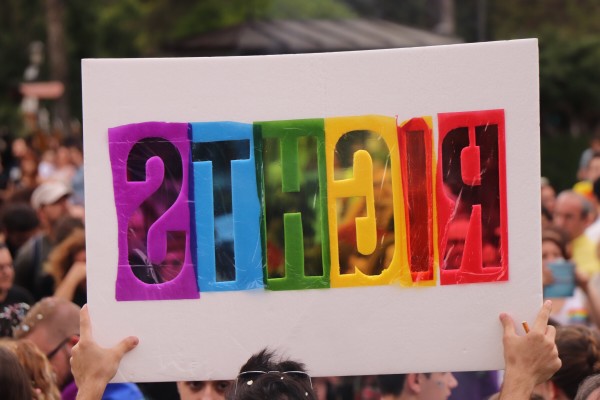The PoSH And Trans Rights Cases That Were Heard In Indian Courts In Past Three Months

Written By: Megha Chandra
Editor’s Note: This edition of the quarterly legal round-up of cases pertaining to D&I and PoSH issues is for the period of June to Aug 2020. In this piece we focus on Kabeer C. v/s State of Kerala P. (C) 9890 of 2020 decided on 08.06.2020 and Aditi Bramta v State of H. P. and others W. P. no. 1628 of 2020 decided on 09.07.2020
Facts Kabeer C. v/s State of Kerala
In June 2020, a Public Interest Litigation (PIL) was filed before the High Court of Kerala by a transgender person, with the complaint that the State of Kerala had not undertaken the distribution of adequate food kits, ration cards to transgender persons. Further, the complaint said — access to community kitchens and medicines and had not made available to the transgender community during the lockdown enforced owing to the pandemic.
The petitioner in this case also complained that members of the transgender community were also facing threats of eviction since they were unable to pay rent. It was specifically alleged that the transgender community was not being given financial benefits as per social employment schemes.
Submission By Kerala
The Director of Social Justice, Thiruvananthapuram responded to the petitioner’s complaints and placed on record the extensive efforts undertaken by the State of Kerala pursuant to the passing of the National Legal Services Authority v. Union of India[1] (“ NALSA judgment” ), for the welfare of the transgender community de hors the lockdown.

The Court was apprised that Kerala, being the first state in the country to do so, has implemented a “Transgender Policy” featuring a two-tier implementation mechanism has been put in place. The state also a Transgender Justice Board at the state level, and a Transgender Justice Committee at the district level to address grievances of the transgender community. Apart from this, various schemes and a 24 X 7 helpline has also been launched by the government for providing assistance to transgenders in case of violation of their rights.
The state apprised the Court that till date only 96 applications for supply of medicines had been received by the Transgender Justice Board, and the ones that could not be processed were because they were incomplete or not supported by valid prescriptions. The State further placed on record details of food kits distributed to transgender persons (having ration cards) during the lockdown.
During the course of hearing, the petitioner filed an additional affidavit by which it sought to bring out particulars of the complaint, in particular naming five persons, who had not been issued ration cards. The state promptly responded that if these five persons approached the Nodal Officer of the concerned district, ration cards would be issued.
Judgment
The court took into consideration the case of five persons, however also lauded the State’s efforts to set up the Transgender Justice Board and recorded that as per the material placed by the State on record, all grievances, as and when raised before the boards, were addressed. The Court also noted, that the grievance of the petitioner of non-issuance of ration card stood addressed pursuant to filing of this petition.
The Court, after going through the contents of the petition was of the view that whilst the petitioner has made various complaints, no actual instance of non-compliance with the guidelines of NALSA judgment was pointed out. The court was also of the view that no directions can ever be issued in a matter which is devoid of any particular grievances, as there is no cause which entails a solution.
The Court observed that until the ransgender community and individual transgender persons, do not approach the relevant authorities to secure their rights (i.e. for issuance of ration cards, medicines etc.), the court cannot step in to rectify an imaginary wrong.
In addition, the court was also cognizant of the fact that members of the transgender community may not be aware of the specific authorities to be approached and directed that it is for the community development organisations and trans-activists to assist transgender community members and raise awareness.
The court did issue guidelines to the State to ensure that food, medicines, ration cards are made available to every member of the Transgender community who approaches the relevant authority with such grievance.
Facts Aditi Bramta v State of H. P.
The petitioner in this case was a victim of sexual harassment at her workplace, and at her instance, an Internal Committee (“the IC”)under the Sexual Harassment of Women at Workplace (Prevention, prohibition and redressal) Act, 2013 had been constituted to look into the allegations of sexual harassment.

The IC after investigation had come to the conclusion that the Petitioner’s allegations prima facie amounted to “sexual harassment” within the meaning of the Women at Workplace (Prevention, prohibition and redressal) Act, 2013. The IC also noted that during investigation, a witness had notified the IC that they were being threatened by the Respondent.
In conclusion of its investigation, the ICC merely directed that the respondent be shifted to another department. However, no other action was directed by the ICC. Therefore, the petitioner approached the court for further directions.
Judgement
The Court, at the very outset noted that the IC’s order was completely bereft of any reasoning.
To simply direct the respondent to be shifted to another department was insufficient resolution of the petitioner’s complaint. The court therefore proceeded to call for the records of the IC’s enquiry. Upon perusing the records, the court found that the IC had miserably failed to comply with the procedure laid down under the PoSH Act, 2013.
As per the provisions of the Act, once an IC has formed a view that instances of sexual harassment have in fact occurred, then it is duty bound to communicate to the employer organization to take action as misconduct and deduct salary as and where applicable. The Court found that no such procedure had been followed and that the IC had, without reason, directed that the respondent be transferred to another department.
The Court quashed the decision of the ICC and directed the organization to constitute a new committee to function strictly in accordance with the provisions of the Act, since the present decision of the IC stood vitiated due to non-compliance with the provisions of the PoSH Act 2013.
In both cases we see that the courts took progressive stances while udnerscoring the role of civil society both as quasi-legal bodies (ICs) or just as collectives, to help get all citizens justice.
About The Author: Megha studied law at Gujarat National Law University (GNLU) and graduated in 2011. Since then, she has always been a litigating lawyer, first in Delhi and now in Mumbai . Apart from a commercial litigation practice, she also takes a keen interest in human rights in india and their enforcement at the grassroots level.
Ungender Insights is the product of our learning from advisory work at Ungender. Our team specializes in advising workplaces on workplace diversity and inclusion. Write to us at contact@ungender.in to understand how we can partner with your organization to build a more inclusive workplace.
The above insights are a product of our learning from our advisory work at Ungender. Our Team specialises in advising workplaces on gender centric laws.
or email us at contact@ungender.in




